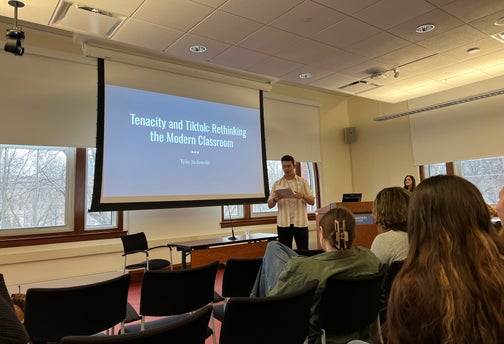How do issues in psychology and psychiatry relate to philosophical questions concerning cognition, emotion, self-consciousness, and the unity of the mind?
How does mental phenomena fit into the physical universe? Should computers have thoughts or consciousness? What is the mind-body problem? With this interdisciplinary minor in philosophical psychology, students will address those questions and others, focusing on the relationship between the mind and the body, as well as topics such as memory, perception, cognitive science, evolutionary psychology, the connection between thoughts and emotions and more.


